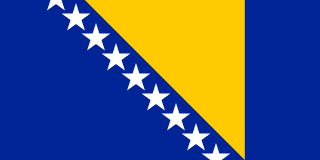

Employer of Record Guide in Uruguay
Uruguay's growing tech sector and business-friendly environment make it an attractive destination for global talent, but navigating local employment laws requires careful attention to detail. Our comprehensive guide helps you hire compliantly while tapping into this emerging South American market.
Capital City
Currency
Languages
Population size
Services available in this country:

Key stats and facts
From Montevideo's thriving tech hub to the country's competitive tax rates, Uruguay offers unique opportunities for businesses seeking skilled talent in Latin America. Understanding the local market dynamics and regulatory landscape is essential for successful expansion.
Major economic hubs
Skills in demand
Currency
Language
GDP per Capita
Standard Tax Rate
Your EOR guide in Uruguay
Uruguay's employment framework combines worker protections with business flexibility, but the details matter when it comes to payroll, benefits, and compliance. This guide breaks down everything from minimum wage structures to mandatory bonus payments, helping you navigate the practical requirements of hiring in Uruguay.
Minimum Wage
Uruguay sets a national minimum wage that applies across all sectors, with periodic adjustments based on economic conditions and collective bargaining agreements.
Current Minimum Wage: Please verify current rates with the Ministry of Labour and Social Security (MTSS) as rates are adjusted regularly through tripartite negotiations between government, employers, and unions.
Note: Uruguay's minimum wage system is unique in Latin America, with sector-specific negotiations that can result in different minimum wages for different industries.
Payroll Cycle
- Monthly: Most common payment frequency in Uruguay
- Bi-weekly: Less common but legally permitted
- Semi-monthly: Allowed under certain circumstances
Note: Employers must ensure consistent payment schedules and comply with banking regulations for electronic transfers.
Individual Income Tax
Uruguay operates a progressive income tax system with rates that vary based on income levels and family circumstances.
Tax Brackets (UYU):
- Tax rates range from 0% to 36% based on income levels
- Family allowances and deductions may apply
- Non-resident tax rates may differ
Note: Tax calculations in Uruguay can be complex due to various deductions and family-based adjustments. Professional tax advice is recommended.
Tax Residency Criteria
Individuals are considered tax residents if they:
- Spend more than 183 days in Uruguay during a calendar year
- Have their centre of vital interests in Uruguay
- Are Uruguayan citizens living abroad but maintaining significant ties to Uruguay
Employer Payroll Contributions
Employers in Uruguay must contribute to various social security and insurance programmes in addition to gross salary payments.
Typical Employer Contributions:
- Social Security: Approximately 12.5% of gross salary
- Health Insurance: Varies based on employee age and family status
- Work Accident Insurance: Rates vary by industry risk level
- Housing Fund: Small percentage contribution
- Professional Training: Minimal contribution for skills development
Estimated Total Employer Cost: Typically 15-20% above gross salary, varying by industry and employee circumstances.
Note: Contribution rates are subject to periodic adjustments and may vary based on collective bargaining agreements in specific sectors.
Working Hours
The standard work week in Uruguay is 48 hours, typically distributed as:
- 8 hours per day, 6 days per week, or
- 9.6 hours per day, 5 days per week
Special Considerations:
- Certain industries may have different hour limits
- Night work and shift work have additional regulations
- Managerial positions may have flexible hour arrangements
Overtime Pay
- Overtime Rate: 100% premium (double time) for hours worked beyond standard limits
- Daily Overtime: Hours beyond 8 per day (in 6-day schedules)
- Weekly Overtime: Hours beyond 48 per week
- Holiday/Sunday Work: Additional premiums may apply
Bonus Payments
Uruguay has a mandatory 13th-month salary (aguinaldo) system:
- Timing: Paid in two instalments (June and December)
- Calculation: Based on average monthly salary earned during the relevant period
- Proration: Calculated proportionally for employees working less than a full year
Full-Time vs. Part-Time
- Full-time: Employees working standard 48-hour weeks
- Part-time: Employees working fewer hours with proportional benefits
- Temporary: Fixed-term contracts with specific duration limits
Vacation Leave
- Standard Entitlement: 20 working days per year after one year of service
- Accrual: Vacation rights accrue from the first day of employment
- Timing: Must be taken within 18 months of earning the right
- Payment: Vacation pay includes a 100% premium (double pay during vacation)
Sick Leave
- Coverage: Provided through social security system
- Duration: Up to one year for the same illness
- Payment: Percentage of salary paid by social security after initial days
- Employer Obligation: May need to pay initial days depending on circumstances
Maternity Leave
- Duration: 14 weeks total (6 weeks before birth, 8 weeks after)
- Payment: Covered by social security system
- Job Protection: Position must be held during leave period
- Flexibility: Some timing adjustments possible with medical approval
Parental Leave
- Paternity Leave: 10 days for fathers
- Parental Leave: Additional shared leave options available
- Adoption: Similar rights apply for adoptive parents
- Payment: Covered through social security contributions
Bereavement Leave
- Duration: Typically 3-5 days depending on relationship to deceased
- Payment: Usually paid leave for immediate family members
- Documentation: Death certificate required
Personal & Family Leave
- Marriage Leave: Several days for employee's wedding
- Study Leave: Time off for educational purposes (may be unpaid)
- Medical Appointments: Reasonable time for medical care
- Family Emergencies: Short-term leave for family crises
Summary
| Leave Type | Duration | Paid? | Funding |
|---|---|---|---|
| Vacation | 20 working days/year | Yes (double pay) | Employer |
| Sick Leave | Up to 1 year | Yes (partial) | Social Security |
| Maternity Leave | 14 weeks | Yes | Social Security |
| Paternity Leave | 10 days | Yes | Social Security |
| Bereavement | 3-5 days | Yes | Employer |
| Personal/Family | Varies | Varies | Employer/Unpaid |
Termination Types
Termination With Cause (Despido con Notificación):
- Requires serious misconduct or breach of contract
- No severance payment required
- Must follow proper notification procedures
- Employee may challenge the cause through labour courts
Termination Without Cause (Despido sin Notificación):
- Employer may terminate without specific reason
- Requires severance payment
- Must provide proper notice or payment in lieu
Notice Period Requirements
Notice periods in Uruguay depend on length of service and type of termination:
| Length of Employment | Notice Period |
|---|---|
| Less than 3 months | 7 days |
| 3 months to 1 year | 15 days |
| 1 to 5 years | 1 month |
| 5 to 10 years | 2 months |
| Over 10 years | 3 months |
Severance Pay
Calculation Method:
- One month's salary for each year of service
- Minimum payment equivalent to one month's salary
- Based on average salary of last 6 months
- Additional payments may apply for specific circumstances
Maximum Limits:
- Severance payments are capped at a certain number of months' salary
- Limits may vary based on collective bargaining agreements
Probationary Periods
- Duration: Typically 90 days for most positions
- Extension: May be extended in certain circumstances
- Termination: Either party may terminate with minimal notice during probation
- Benefits: Reduced severance obligations during probationary period
Final Pay Requirements
Employers must provide final payment including:
- Outstanding salary
- Proportional vacation pay with premium
- Proportional 13th-month salary
- Any other accrued benefits
Timeline: Final payments must be made within specific timeframes as required by labour law.
Anti-Discrimination & Retaliation Laws
Employees cannot be terminated for:
- Union activities or membership
- Filing labour complaints
- Pregnancy or family status
- Discrimination based on protected characteristics
- Exercising legal labour rights
National Holidays
Uruguay observes several national holidays throughout the year:
| Holiday | Date | Notes |
|---|---|---|
| New Year's Day | January 1 | Fixed |
| Epiphany | January 6 | Fixed |
| Carnival | February/March | Variable dates |
| Easter Week | March/April | Variable dates |
| Landing of the 33 Patriots | April 19 | Fixed |
| Labour Day | May 1 | Fixed |
| Battle of Las Piedras | May 18 | Fixed |
| Birthday of Artigas | June 19 | Fixed |
| Constitution Day | July 18 | Fixed |
| Independence Day | August 25 | Fixed |
| Diversity Day | October 12 | Fixed |
| All Souls' Day | November 2 | Fixed |
| Christmas Day | December 25 | Fixed |
Holiday Pay Rules
- Payment: Employees receive regular pay for statutory holidays
- Work Requirements: If required to work on holidays, employees receive premium pay
- Eligibility: All employees entitled to holiday pay regardless of tenure
- Tourism Holidays: Some holidays may be moved to create long weekends for tourism purposes
Bridge Days
Uruguay sometimes declares "bridge days" (días puente) to create extended weekends, particularly when holidays fall on Tuesdays or Thursdays. These are typically announced by government decree.
Required Documents for Employment
Employment Contract:
- Must be in writing for contracts exceeding 30 days
- Include job description, salary, working hours, and conditions
- Specify probationary period if applicable
- Include termination clauses and procedures
Government Registration:
- Social security registration (BPS)
- Tax identification number
- Work permit (for foreign employees)
- Health insurance enrolment
Employee Documentation:
- Identity document (cédula de identidad)
- Proof of address
- Educational certificates (if required for position)
- Medical examination (for certain positions)
Language Requirements
- Official Language: Spanish is the official language
- Contracts: Employment contracts should be in Spanish
- Workplace Communication: Spanish proficiency generally required
- Documentation: All official documents must be in Spanish or officially translated
Background Checks & References
- Employment Verification: Previous employment references commonly requested
- Criminal Background: May be required for certain positions (banking, security, childcare)
- Educational Verification: Academic credentials verification for professional positions
- Credit Checks: Limited use, primarily for financial sector positions
Data Protection & Privacy
Uruguay has comprehensive data protection laws:
- Personal Data Protection Act: Governs collection and use of personal information
- Employee Consent: Required for data collection and processing
- Data Security: Employers must implement appropriate security measures
- Cross-Border Transfers: Restrictions on transferring personal data outside Uruguay
IP Assignment & Confidentiality
- Intellectual Property: Work-related creations typically belong to employer
- Confidentiality Agreements: Common for sensitive positions
- Non-Compete Clauses: Limited enforceability, must be reasonable in scope and duration
- Trade Secrets: Protection available under commercial law
Probation Period Setup
- Standard Duration: 90 days for most positions
- Documentation: Must be clearly specified in employment contract
- Evaluation: Regular performance reviews recommended
- Termination: Simplified termination procedures during probation
Onboarding Timeline
| Step | Timeline |
|---|---|
| Job offer accepted | Day 0 |
| Employment contract signed | Day 1-3 |
| Government registrations | Day 3-7 |
| Social security enrolment | Day 5-10 |
| Health insurance setup | Day 7-14 |
| Payroll system integration | Day 10-15 |
| Full onboarding completion | Day 15-20 |
What the EOR Handles
Borderless AI manages:
- Employment contract preparation and execution
- Government registrations and compliance
- Social security and tax enrolments
- Payroll setup and processing
- Benefits administration
- Ongoing compliance monitoring
Worker Classification: Employee vs. Contractor
Uruguay has strict rules distinguishing employees from independent contractors:
Employee Characteristics:
- Work under employer direction and control
- Use employer-provided tools and equipment
- Work set hours at employer's location
- Receive regular salary and benefits
- Subject to disciplinary measures
Independent Contractor Characteristics:
- Provide services independently
- Use own tools and equipment
- Set own working hours and methods
- Invoice for services provided
- Bear business risks and expenses
Misclassification Risks:
- Penalties and back payments of social security contributions
- Retroactive employment benefits
- Labour court proceedings
- Regulatory sanctions
Unionisation & Collective Agreements
Uruguay has a strong tradition of unionisation and collective bargaining:
- Union Membership: High rates of union membership across sectors
- Collective Bargaining: Sector-wide agreements common
- Wage Councils: Tripartite negotiations set minimum wages by sector
- Strike Rights: Constitutional right to strike with certain limitations
- Union Security: Various forms of union security arrangements
Cultural Norms & Workplace Expectations
Communication Style:
- Formal business relationships initially
- Personal relationships important for business success
- Direct but polite communication preferred
- Hierarchy respected but not rigid
Work-Life Balance:
- Family time highly valued
- Long lunch breaks common
- Flexible scheduling appreciated
- Vacation time fully utilised
Professional Development:
- Education and training valued
- Professional certifications respected
- Continuous learning encouraged
- Career advancement through merit
Remote Work Considerations
Remote work regulations in Uruguay include:
Legal Framework:
- Remote work law enacted covering rights and obligations
- Equal treatment with office-based employees
- Right to disconnect outside working hours
Employer Obligations:
- Provide necessary equipment and tools
- Ensure safe working conditions
- Maintain communication and supervision
- Respect employee privacy
Employee Rights:
- Same benefits as office workers
- Reimbursement for work-related expenses
- Training and development opportunities
- Health and safety protections
Cross-Border Considerations:
- Tax implications for remote work from other countries
- Social security coverage requirements
- Immigration and work permit issues
- Data protection compliance across borders
Note: Remote work arrangements should be clearly documented in employment contracts and comply with both Uruguayan law and any applicable international regulations.
Built-in benefits packages for Uruguay
When the world is your competition, it pays to incentivize new hires and existing alike. Borderless AI benefits packages typically inlucde:

Medical Insurance

Dental Insurance

Retirement Contribution

Life Insurance

Vision Insurance
Explore other countries

Unlock global hiring potential
Simplify your payroll and hiring processes today.


.png)





